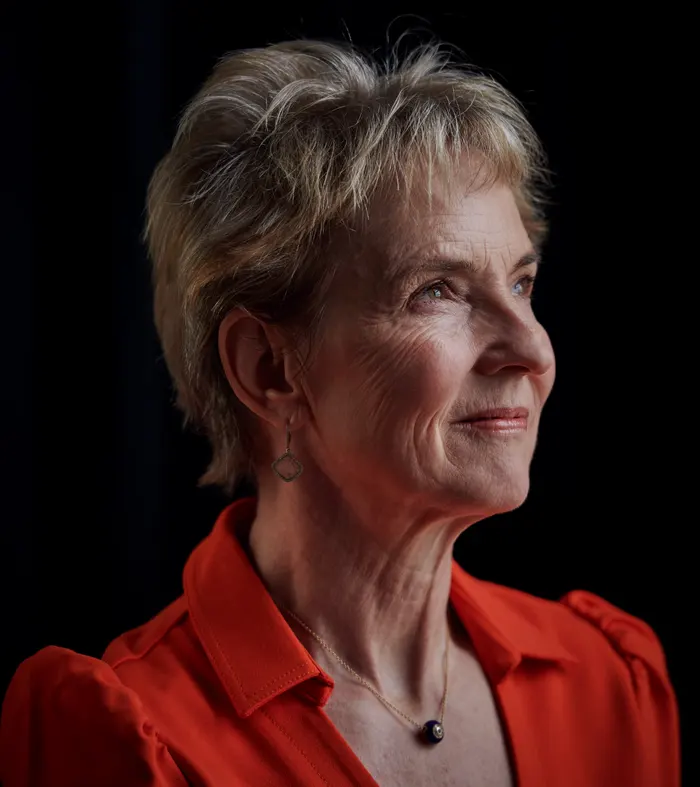Bestselling psychotherapist Julia Samuel explores the family with her usual warmth and wisdom. What we inherit and how we can change
Relationships fundamentally influence our health and happiness — and family is the only relationship we cannot leave, however much we might like to. But we think too narrowly about the impact of our families on our lives.
Every Family Has A Story sees bestselling psychotherapist Julia Samuel turn from her work with individuals to sessions with various families. I was lucky enough to interview Julia with her book Grief Works a few years ago.
This time she moves from the individual to the family system. Diving deep into eight case studies, with her usual storytelling panache and the latest academic research, she analyses a range of common issues, including separation, step-relationships, leaving home, trauma and loss. In doing so, she reveals insightfully how deeply we are influenced by our families — including the often under-appreciated impact of grandparents and siblings — and offers universally applicable insights into how families can face challenges together.
‘The difficult truth is that we can only fix what we can face.‘
Her 12 touchstones for family well-being- from fighting productively to making time for rituals and setting boundaries to allowing difference- ultimately provide us with the tools to be better family members. Revealing forgiveness and learning amidst trauma and hardship is an honest and compassionate meditation on what we inherit and how we can create the families we wish for.
Why do our families drive us mad?
Our family relationships fundamentally impact our health and happiness — but we think too narrowly about the impact of our families on our lives. I think it’s essential to be compassionate with ourselves first, our family and our family of origin. I was an imperfect mother, and my mother was an imperfect mother and grandmother.
The “Good enough” parent, as Donald Winnicott, the renowned psychoanalyst, termed families, constitute the bedrock of our lives. This basis keeps us stable when we face the challenges of life. When working well for team support, we can turn to our family in hardship. Home and family can be a sanctuary to recover and rebuild our strength when the external world feels broken and scary. And sometimes, there are many ruptures before the ultimate repair.
‘It is rare for people to enter therapy because of wounds of the past; they come because those wounds are hurting the present.‘
The overwhelming sense is that, for better or worse, we are ‘trapped’ within our families. Yet, many know freewheeling souls who believe they left their roots behind years ago. So, if indeed we are inextricably locked within our family structures, we might as well try to understand all we can about what Samuel memorably describes as ‘the fingerprint of love and loss’.
Eight families undertook this process with her, the pandemic making meetings by Zoom inevitable. This meant that the psychotherapist could talk to various family members at once — the logistics of which might have been daunting at regular times. They are diverse in ethnicity, sexuality, economic circumstances, and the issues they raise: divorce, grief, same-sex marriage and adoption, addiction, and empty nest syndrome.
One theme that really spoke to me throughout the book was the one about transgenerational trauma. ( Transgenerational trauma refers to the transmission of the effects of trauma from one generation to the next. This type of trauma can result from experiences such as war, genocide, forced migration, and systemic oppression, which can cause lasting emotional, psychological, and physical damage to individuals and communities).
Samuel states that transgenerational trauma can manifest in several ways, including family dysfunction, substance abuse, mental health disorders, and a sense of helplessness and hopelessness. Indeed, the effects of trauma can be passed down through genetic and environmental factors, including how parents or caregivers interact with their children.
It is essential to acknowledge and address the impact of transgenerational trauma to break the cycle and promote healing. This is where therapy helps repair rupture for the individual and all the family members.
‘Anyone looking at their own family would benefit by examining their inherited family patterns and behaviours to see what might need adapting.‘
One story invites the reader to contemplate the long-term effect of suicide on the family. At the same time, another asks how stepfamilies can find harmony when their relationship is built on conflict. In the eight case studies, we are gently guided, along with the participants, towards a deeper understanding of the importance of honesty, self-examination and communication within all relationships.
Reference: Every Family Has A Story supplies the tools to support this work of enhancing our relationships. Its twelve touchstones for family well-being reveal how to communicate effectively, establish boundaries, fight constructively and allow change. With two adult sons and generational trauma on my and my husband’s sides, this book was a game-changer.


